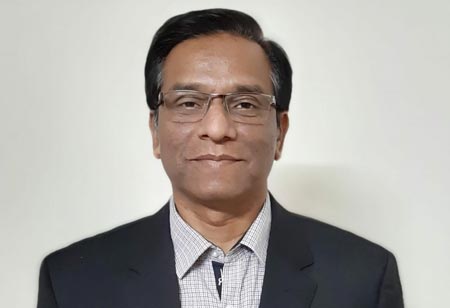
Upgrading The Skills To The Present Day Requirement - Is It Essential?


Dr. M S Ganesha Prasad, Dean, Prof & Head, Department of Mechanical Engineering, New Horizon College of Engineering, Bangalore, 0
Job market in India is started improving, and the number of layoffs is getting reduced. To cope-up with the present and future market trends and sustain in the competitive world, one has to improve certain skill sets which are not only related to soft skill sets like customer service, bilingual or multilingual, strong interpersonal skills, self-motivation & creativity, emotional intelligence, and oral & written communication skills. In addition to these skill sets, for an engineer to belong to any domain, he/she should be equipped with technology skills like artificial intelligence, machine learning, deep learning, autonomic computing, cluster analysis, cognitive computing, data science, genetic algorithm and unsupervised learning.
With the added technical skill sets, the engineer can comfortably connect with the surroundings. Most of the software & hardware products which are available with us are actually making use of such technologies. The primary responsibility of the engineer is to be aware of these technologies irrespective of the domain he/she belongs to, meaning everyone will need a certain level of comfort around technologies. From most basic level till to an extent of understanding oneself, employees in most roles will be required to access data and determine how to act on it. This requires some technical skills. On a more fundamental level, everyone needs to be able to understand the potential impact of new technologies on their industry, business, or on their job.
The speed at which technology is changing in the present and future workplaces, responsible persons have to be alert and able to clinch & celebrate change. Human
brains not only are flexible, but we’ll also need to be adaptable, as we are required to adjust to shifting workplaces, expectations, and skill-sets. For the fourth Industrial Revolution, one’s ability is to not only see the changes as the burden, but as an opportunity to grow and innovate.
People who can work comfortably in changing work environments will show that they like the changes than to be static. This attitude of adopting to change management is very much essential, because skills required for the professional services dropped from 30 years to an average of six years only. It’s time for all of us to begin acquiring skills that will make us valuable resources in the future workplace. Fast-paced technological innovations mean that most of us will soon share our workplaces with artificial intelligences and allied technologies. So how can one stay ahead? This may be possible by adopting a commitment to lifelong learning, so you can acquire the skills you will need to succeed in the future workplace.
At present, soft-skills are considered to be the required skills, but to survive in this competitive world, one at-least needs to know the knowledge of Artificial Intelligence, Machine Learning or allied technologies. Understanding these technologies may not require good amount of technical knowledge base, but one needs to distinguish between what is present and future technologies, maybe by the performance of hardware/software products.
As mentioned by Sri Sadhguru, “Memory is not intelligence. Having more information does not make one more intelligent”. Also, “Alertness and consciousness are what will make a person superior”, as artificial intelligence takes-up the task of remembering and carrying information. But without good logic, one cannot build machine/hardware/software which can perform like a human brain. So one has to upgrade the skill sets to meet the present day requirements, but in a more ethical manner, because the logic will apply back to the humans.
People who can work comfortably in changing work environments will show that they like the changes than to be static. This attitude of adopting to change management is very much essential, because skills required for the professional services dropped from 30 years to an average of six years only. It’s time for all of us to begin acquiring skills that will make us valuable resources in the future workplace. Fast-paced technological innovations mean that most of us will soon share our workplaces with artificial intelligences and allied technologies. So how can one stay ahead? This may be possible by adopting a commitment to lifelong learning, so you can acquire the skills you will need to succeed in the future workplace.
Human brains not only are flexible, but we’ll also need to be adaptable, as we are required to adjust to shifting workplaces, expectations, and skill-sets
At present, soft-skills are considered to be the required skills, but to survive in this competitive world, one at-least needs to know the knowledge of Artificial Intelligence, Machine Learning or allied technologies. Understanding these technologies may not require good amount of technical knowledge base, but one needs to distinguish between what is present and future technologies, maybe by the performance of hardware/software products.
As mentioned by Sri Sadhguru, “Memory is not intelligence. Having more information does not make one more intelligent”. Also, “Alertness and consciousness are what will make a person superior”, as artificial intelligence takes-up the task of remembering and carrying information. But without good logic, one cannot build machine/hardware/software which can perform like a human brain. So one has to upgrade the skill sets to meet the present day requirements, but in a more ethical manner, because the logic will apply back to the humans.